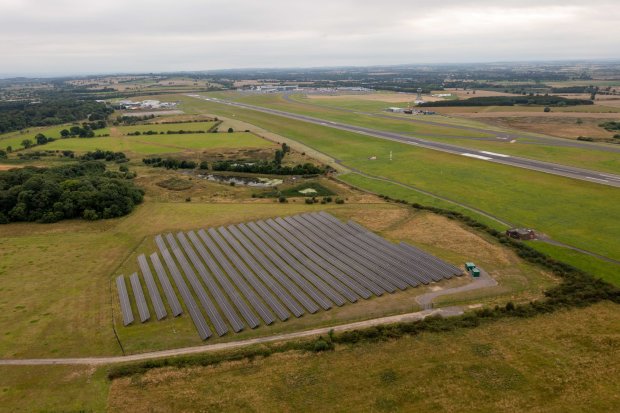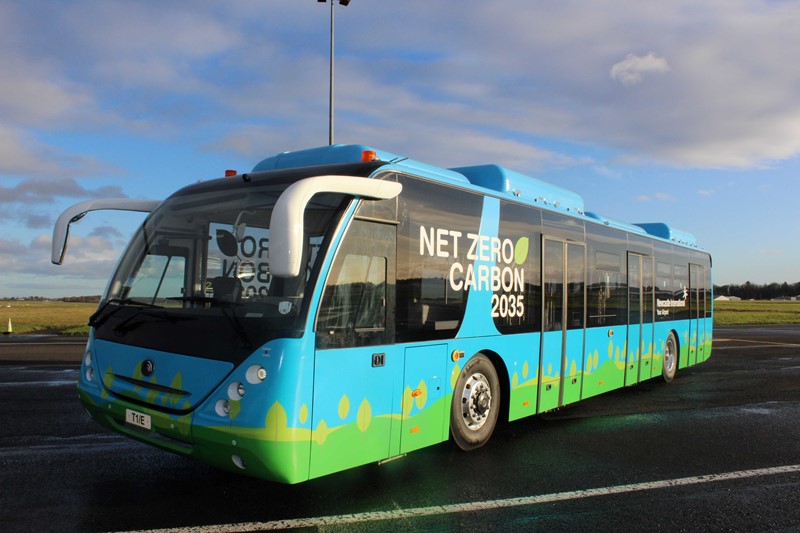Newcastle International Airport recognised for reduction in carbon emissions

Newcastle International Airport has achieved ‘Level 3: Optimisation’ of the Airport Carbon Accreditation (ACA) scheme for its efforts to reduce its carbon emissions.
ACA is the only institutionally endorsed global carbon management certification programme for airports. Independently assessing and recognising efforts to manage and reduce their carbon emissions, airports are judged through seven levels of certification named: mapping, reduction, optimisation, neutrality, transformation, transition and Level 5.
Newcastle Airport was reviewed against a strict framework which assessed its carbon footprint measurement practices, the strides taken to minimise its carbon footprint and collaborative engagement with third parties such as airlines, independent ground handlers, and commercial business partners.
The Level 3 accreditation recognised Newcastle International Airport for sustainability initiatives, including:
- Solar Energy: Phase One of the Airport’s Solar Farm is capable of generating 100% of its electricity demand on a sunny day. In 2023, Phase One generated more than 1,800,000 kWh of renewable energy and displaced more than 360 Tonnes of CO2e.
- Green Electricity: Newcastle International Airport has ensured any additional electricity drawn from the grid is derived from 100% renewable energy sources.
- Electrification: The introduction of EV charging infrastructure has added 66 points across the Airport site for staff and operational vehicles.
- Green Travel: Green travel plans have been implemented for staff, including a Car Share Scheme, Cycle to Work Scheme and Electric Vehicle Salary Sacrifice Scheme. In 2023, 35% of passengers were also transported to their aircraft by an electric vehicle.
- Woodland Planting: An additional 8,000 trees planted in 2023 on Airport owned land.
Olivier Jankovec, Director General at ACI Europe, said: "I would like to congratulate Newcastle International Airport on its upgrade to the certification Level 3 - Optimisation under the Airport Carbon Accreditation programme.
“This underscores the Airport's commitment to decarbonisation across the entire airport site, demonstrated through a series of impactful CO2 reduction initiatives, including the installation of a solar farm that can provide 100% of the airport’s electricity demand on a sunny day.
“It’s fantastic to see the Airport not only progressing further towards its target to reach Net Zero by 2035 for CO2 emissions under its control, but also engaging with its airlines and other operational partners using the airport to reduce their own emissions.
“Thumbs up to all the teams involved for effectively contributing to a more sustainable air transport system.”
Nick Jones, Chief Executive of Newcastle International Airport, said: "Newcastle International Airport is firmly committed to achieving Net Zero Carbon by 2035 and obtaining Level 3 Airport Carbon Accreditation marks significant progress toward this ambitious goal.
"We take immense pride in our accomplishments so far; however, we acknowledge that there's still work ahead. This year, we are confident that Newcastle International Airport will remain a sector leader in sustainability* and continue to reach milestones on the path to Net Zero Carbon by 2035.
“These include plans to develop an EV charging forecourt at Callerton Parkway, operated by Fastned, introducing even more electric vehicles to our operational fleet, planting an additional 12,000 trees, and making strides toward implementing low-carbon heating in the main terminal."
*In October 2023, Newcastle International Airport achieved a record score of 99% in the 2023 GRESB Infrastructure Assessment – ranking the business 3rd in the world amongst participating airports and achieving ‘Sector Leader’ status.
The GRESB sector leader awards recognise real estate and infrastructure companies, funds and assets that have demonstrated outstanding leadership in sustainability each year. Newcastle International Airport was recognised for its recently released annual Corporate Social Responsibility Report, its Noise Action Plan and Net Zero 2035 roadmap.



